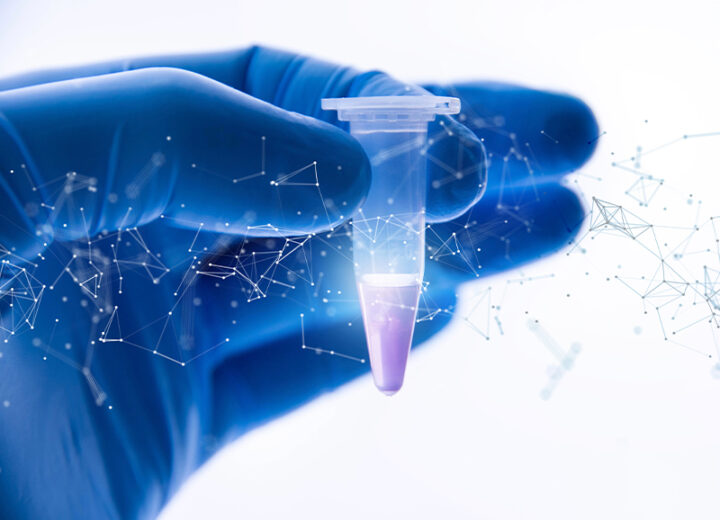18 July 2024
The Cocoon guide to recombinant proteins and biomedicine

In recent years, the field of biomedicine has witnessed transformative advancements, largely driven by the innovative use of recombinant proteins.
These engineered proteins are playing a crucial role in the development of mRNA and cell therapies. Moreover, they are revolutionizing the landscape of modern therapeutics.
By efficiently producing and leveraging these proteins, researchers and clinicians are paving the way for groundbreaking treatments and cures.
Below, we’re exploring the impact of recombinant proteins in biomedicine. You’ll see key examples and we’ll discuss how they work. We’ll also delve into how our innovative approach to producing recombinant proteins can address industry challenges to enable the synthesis of diverse therapeutics, including both cell and gene therapies.
How recombinant proteins work, and their benefits
The working principles of recombinant proteins in therapeutics are diverse and tailored to specific applications. In mRNA therapies, recombinant proteins help the stabilization, delivery, and translation of mRNA molecules.
They ensure that the mRNA is effectively translated into the target protein. This is what ensures they provide the intended therapeutic effect. In cell therapies, recombinant proteins stimulate the growth, differentiation, and activation of therapeutic cells, enhancing their efficacy and longevity.
The benefits of using recombinant proteins in biomedicine are substantial. They offer high precision. By ensuring that each batch of protein is identical, meets stringent quality standards and can be produced at scale, they are made more accessible for large-scale therapeutic applications. Their ability to be tailored for specific functions allows for the development of targeted therapies with minimal side effects.
Read more in this blog about understanding recombinant proteins
The role of recombinant proteins in biomedicine
Recombinant proteins are synthesized when a DNA sequence encoding the protein of interest is inserted into a host cell, which then expresses the protein. This technology allows for high-precision and consistency proteins, making them invaluable in biomedicine.
The applications of recombinant proteins span a wide range of therapeutic applications, including the development of mRNA and cell therapies, which are at the forefront of modern medical research.
mRNA therapies
mRNA therapies have gained significant attention due to their potential to treat a wide range of diseases, including genetic disorders, infectious diseases, and even cancer.
Recombinant proteins are essential in the development and production of these therapies. For instance, growth factors and recombinant enzymes are used to enhance the stability and delivery of mRNA molecules.
These proteins facilitate the efficient translation of mRNA into functional proteins within the body, ensuring the desired therapeutic effect.
One of the most notable examples of mRNA therapy is the development of COVID-19 vaccines – which relied heavily on recombinant proteins for rapid production and distribution.
By enabling the efficient synthesis and expression of the spike protein of the SARS-CoV-2 virus, recombinant protein technology played a pivotal role in the success of mRNA vaccines, enabling greater worldwide recovery from an unprecedented threat.
Cell therapies
Cell therapies involve the use of living cells to treat or cure diseases. These therapies can be autologous (using the patient’s cells) or allogeneic (using donor cells).
Recombinant proteins are instrumental in cell therapies, particularly in the expansion and differentiation of therapeutic cells.
For example, growth factors such as recombinant interleukins and colony-stimulating factors are used to stimulate the proliferation and maturation of stem cells, enhancing their therapeutic potential.
Chimeric antigen receptor (CAR) T-cell therapy is a prime example of cell therapies that rely on recombinant proteins.
In this therapy, T cells are engineered to express a receptor that targets specific cancer cells, and recombinant proteins are used to produce the receptor and other components necessary for the therapy.
This approach has shown remarkable success in treating certain types of cancer, highlighting the potential of recombinant proteins to transform cancer treatment.
RELATED: How recombinant proteins are advancing healthcare
Exploring our innovative approach
Here at Cocoon, we’re at the forefront of recombinant protein production, employing innovative methods to address industry challenges and enhance the synthesis of therapeutics.
Our CrisBio® platform utilizes insect chrysalises as natural bioreactors, enabling the cost-effective and scalable production of high-quality recombinant proteins. This approach offers several advantages over traditional methods, including reduced production costs, increased yields, and shorter production times.
By leveraging the natural bioreactor capabilities of insect chrysalises, our solutions produce recombinant proteins much more efficiently than traditional methods.
This innovation is particularly beneficial for the synthesis of complex therapeutics that are not protein-based, such as cell and gene therapies. Here, the cost-effective production of growth factors and recombinant enzymes can significantly enhance the scalability and affordability of cell therapies, making them accessible to a broader patient population with potentially life-changing results.
Addressing several industry challenges
The biomedicine industry faces several challenges, including high production costs, scalability issues, and regulatory hurdles. Our approach aims to address these, providing a sustainable and efficient method for producing recombinant proteins.
By using insect chrysalises as bioreactors, we’re able to reduce the need for expensive infrastructure, all while minimizing production costs. The same method also provides high scalability and consistent quality, meeting the stringent requirements for clinical and commercial applications.
You can read more about the challenges of developing recombinant proteins here.
Discover the benefits of recombinant proteins
Discover how our innovative approach to producing recombinant proteins is transforming the future of biomedicine. Using insect chrysalises offers significant advantages. By breaking down industry challenges, it enables the synthesis of diverse therapeutics.
Explore more about our revolutionary CrisBio® platform and discover how our custom recombinant protein solutions can transform the future of biomedicine.


